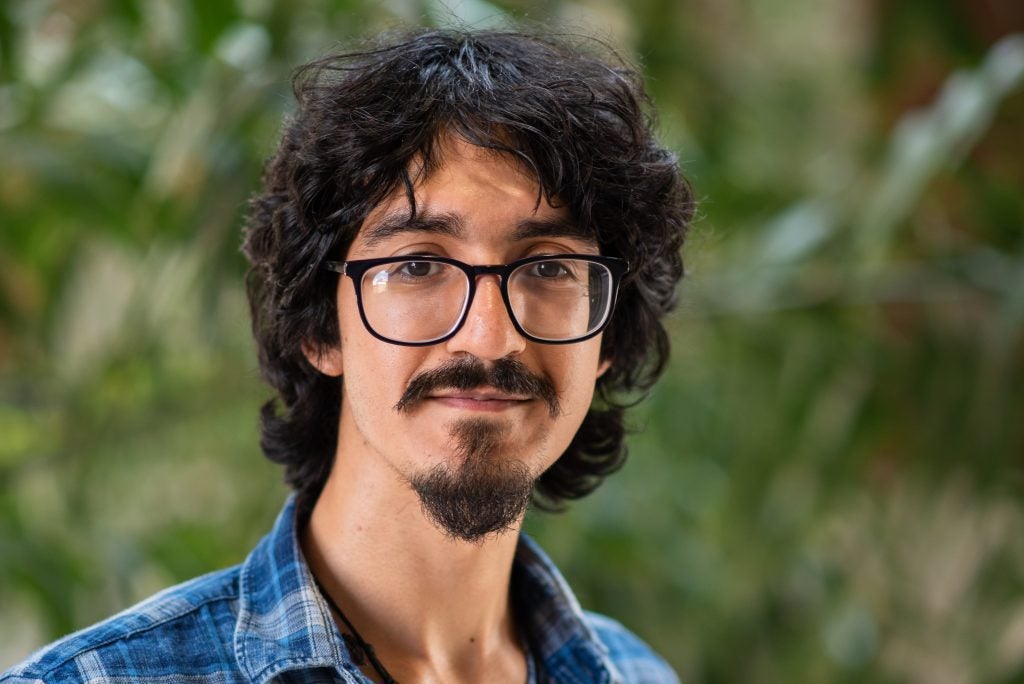New Grad Heads to Paris For Doctoral Degree

Recent physics graduate Christian Cabello ’23 says bonjour to a new life in Paris this fall, where he’ll take advantage of a full scholarship to pursue a doctorate degree at the Institut Polytechnique de Paris (IP).
The new adventure not only brings him to Europe for the first time but opens access to rare equipment in the field of extreme laser-plasma interactions. It’s a dream come true for someone who considered IP before even starting as an undergraduate.
The son of Venezuelan immigrants, Cabello was always fascinated with physics growing up: “I remember learning the basic ideas behind quantum field theory and it blew my mind.” It was learning about nuclear fusion, though, that inspired him to find ways to contribute to the field. UCF was his first choice as a starting line.
During his time as a Knight, Cabello worked in the Undergraduate Learning Assistant Program run by Instructor Adam LaMee, which gave him a chance to meet other students and understand things in a more intuitive way, he explains. Then, after being selected as a scholar for the Partnerships for Research and Education in Materials (PREM) program, he found his passion for research.
Because of PREM, Cabello’s been able to follow his interest in attosecond science with the Laboratory for Ultrafast Metrology and Attoscience in Solids (LUMAS), headed by Associate Professor Michael Chini, Ph.D.
“Think of holding a pen in front of you and imagine its length represents one second. Cut it into a billion pieces. Now take one of those pieces and cut that into a billion pieces. It’s a billionth of a billionth of a second,” he says.
Attosecond science provides insight into the behavior of electrons on their own timescales. This will enable understanding for ultrafast control of material properties and response. The work has the potential to advance materials research, drug design and the biomedical industry, among other things.
In addition to conducting research, he has also presented at popular conferences, such as the Conference on Lasers and Electro-Optics (CLEO) and the American Physical Society (APS) Division of Atomic, Molecular and Optical Physics.
The opportunity to present at CLEO in the competitive post-deadline session as an undergraduate student was both a huge honor and rare as these sessions are often led by doctorate students, postdocs, or research professors.
All of his UCF experience builds up to Paris, where he plans to research high-order harmonic generation from relativistic plasma mirrors. Because of the need for more intense sources of attosecond pulses, the extreme laser-plasma interactions offer potentially great gains within the field. These sources will enable studies of electronic and nuclear behavior with unprecedented time-resolution, which is key in the development of next-generation technologies, including optical computing, ultrafast and nano-electronics, and biomedical diagnostics.
Cabello credits UCF for his strong foundation and opening the door to opportunities that will help take him to the next level. “I learned so much along the way,” he says. “I can’t wait to see what the future holds.
